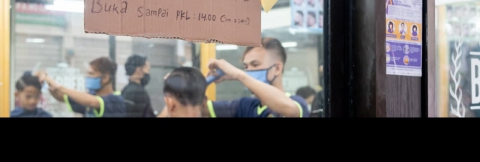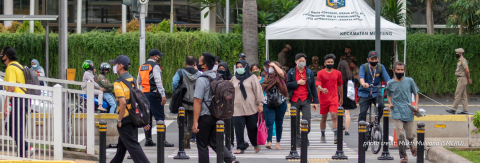The economic crisis triggered by the coronavirus disease 2019 (COVID-19) pandemic has had an impact on the employment situation in Indonesia. There are at least two implications of the crisis on the employment sector: (i) an increase in unemployment rate and (ii) changes in the landscape of the labor market.
A simulation by The SMERU Research Institute (SMERU) shows that the unemployment rate could rise to 6.19%– 6.69% by the end of March 2020, as compared with 4.99% in February 2020. Meanwhile, in terms of business type, the construction industry, processing industry, trade, and corporate services are the businesses that have reduced their labor absorption the most. Efforts to stop the increasing number of unemployment will be a challenge as the possible rate of labor reabsorption will not equal the number of workers being laid off. Another challenge is that the future employment landscape will require workers to be skilled in information technology and a more flexible system of labor relations. That is the reason why a specific strategy to address the employment challenges is needed. This includes, among other things, support for the relaxation of company’s operating cost, a sustainable training program for employees, a review of labor regulations to push for flexibility in the labor market, and efforts to improve productivity in the informal sector.











